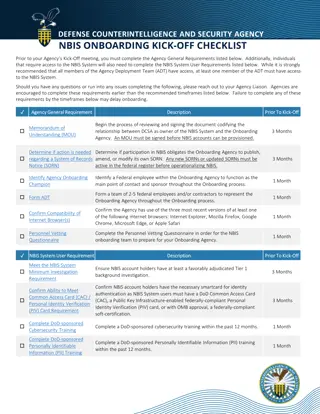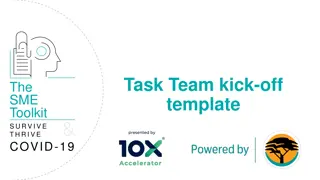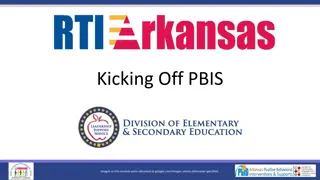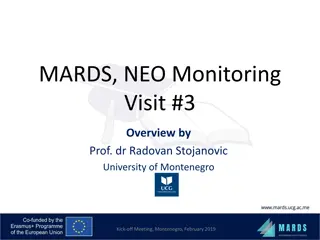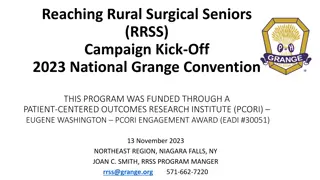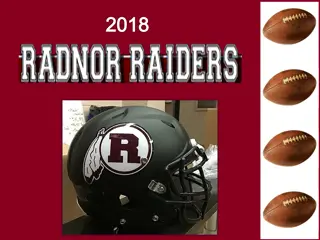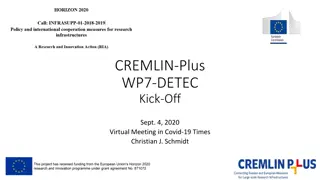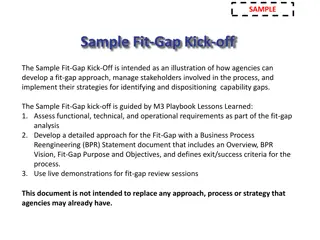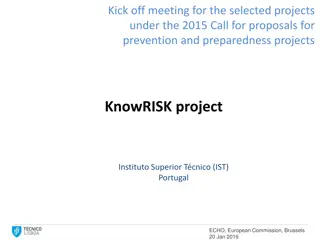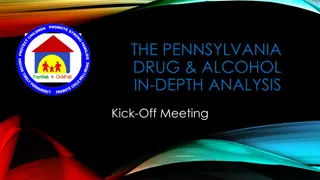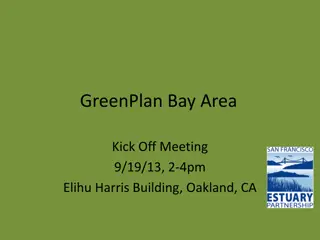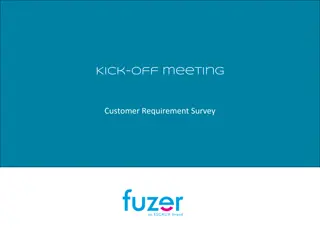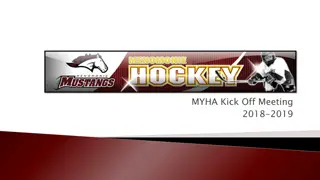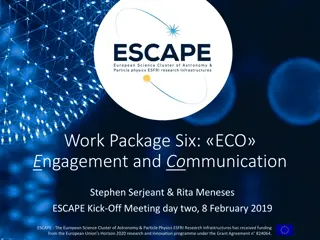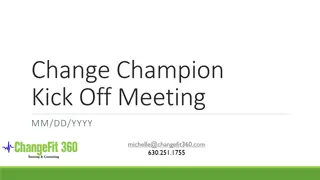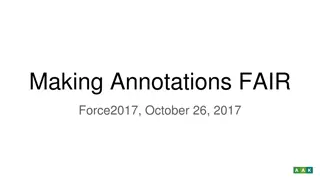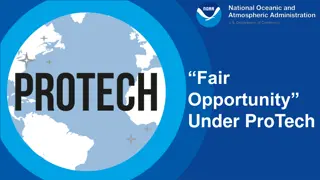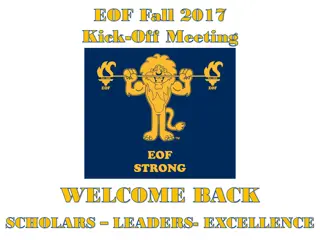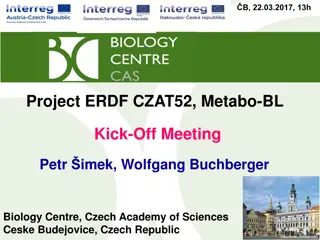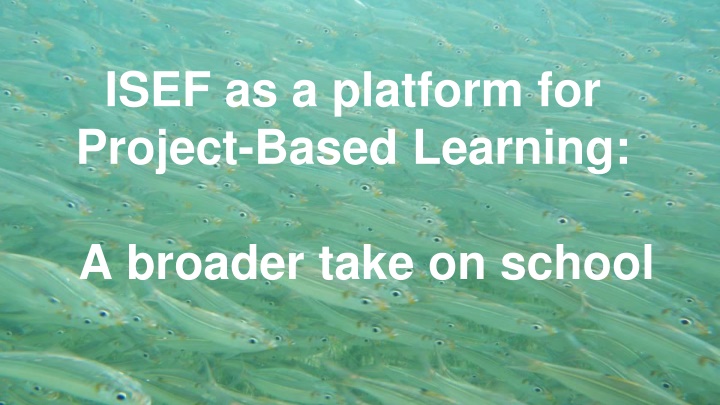
Transforming Science Education Through Project-Based Learning with ISEF
"Explore how the International Science and Engineering Fair (ISEF) can revolutionize secondary science education through Project-Based Learning (PBL). Discover success stories and insights from SkyView Academy's Science Department, and delve into the state of U.S. science education and its impact on aspiring scientists. Uncover the influence of prestigious awards like Nobel Prizes and the critical role of schools in nurturing scientific talent."
Download Presentation

Please find below an Image/Link to download the presentation.
The content on the website is provided AS IS for your information and personal use only. It may not be sold, licensed, or shared on other websites without obtaining consent from the author. If you encounter any issues during the download, it is possible that the publisher has removed the file from their server.
You are allowed to download the files provided on this website for personal or commercial use, subject to the condition that they are used lawfully. All files are the property of their respective owners.
The content on the website is provided AS IS for your information and personal use only. It may not be sold, licensed, or shared on other websites without obtaining consent from the author.
E N D
Presentation Transcript
ISEF as a platform for Project-Based Learning: A broader take on school
Outline for this talk Backward designing secondary science education from the template of the university research lab ISEF as a platform for Project Based Learning (PBL) How we have used ISEF and PBL in the SkyView Academy Science Department
Nobel Prizes (no phones!) (https://news.nationalgeographic.com/2017/10/nobel-prize- winners-laureates-charts-graphics-science/) Awards to about 931 Nobel Prize winners (1901-2017) 585 Science-based Nobel Prizes to US citizens (about foreign born) 397 Harvard (1st in the world) 157 Cambridge (2nd in the world) 116 University of Illinois (tied for 24th in the world) 30 University of Colorado 5
High Schools with Nobel Prizes in Science 8 Bronx High School of Science (1/10,000) 7 Lycee Louis le Grand (1/10,000) 3 University of Illinois Laboratory High School (1/5,000) 13 Intel Science and Engineering Fair (1/5,000)
What is the state of U.S. science education?
What is successful secondary science teaching? Kids meet their potential Kids participate in the processes of science Kids better prepared to become scientists Generate reliable information Help solve the big problems of society Learn how to do effective research What do scientists say about US secondary science education?
U.S. graduate science education; Juggernaut 75% of the world s best schools in the Life Sciences, Physical Sciences and Social Sciences are in the US US schools attract the best and brightest students and (research) professors from all over the world Fire hose of funding and resources From the US government 195 billion for basic research per year 510 billion total budget for research University of Illinois get 132 million dollars a year in applied funding University of Colorado gets 80 million a year in total research funding
Research is the appropriate target for curriculum design training future scientists Research is the reactor core of the scientific enterprise Science exists to create reliable information The main source of reliable information in society Even professionals who do not create information must use research State of the art for curriculum design = backward design Begin at the goal; build a path back to where we are For scientists, the appropriate target is graduate education not undergrad Our science students are going to graduate and professional schools
Provide a back door to the culture of the graduate research laboratory Provide connections to networks of practitioners ISEF is a ready-made platform to support student research and Project Based Learning
What is Project-Based Learning? Adapted from: https://www.edutopia.org/pbl-research-learning-outcomes#definition Project-based learning (PBL) hails from a tradition of pedagogy which asserts that students learn best by experiencing and solving real-world problems. According to researchers (Barron & Darling-Hammond, 2008; Thomas, 2000), project-based learning involves the following: Students learning knowledge to tackle realistic problems as they would be solved in the real world Increased student control over his or her learning Teachers serving as coaches and facilitators of inquiry and reflection Students (usually, but not always) working in pairs or groups
Buck Institute Model for PBL Key knowledge, understanding, success and skills a. Challenging problem or question b. Authenticity c. Student voice and choice http://www.bie.org/about d. Public product e. Reflection f. Critique and revision g. Sustained inquiry
Benefits of Project-Based Learning Increases long-term retention of content Helps at-risk students perform as well as or better than traditional learners in high-stakes tests Improves problem-solving and collaboration (and networking) Improves student attitudes towards learning (Strobel & van Barneveld, 2009; Walker & Leary, 2009).
Our situation at SkyView Academy Young, small charter school Limited resources Three science faculty (currently 3.4) Needed an honors science program Small size facilitates innovation
My experience with graduate research Worked as biological researcher 1990-2013 Supervised undergraduates in a graduate research lab Organized lab operations, research design and field sampling Won grants and projects; Co-PI, Post-graduate Researcher, Consultant Unreplicated observations: 1. University labs have have astonishing influence over undergrad success. 2. Undergraduates connected to research labs are more successful. 3. High school students can be capable researchers. 4. Students learn best by doing, especially high school students.
SkyView Academy Honors Science 2013 to date Began Science Honors program in 2013 Single requirement for Honors designation is a research or engineering project that competes outside the building (ISEF) Occasional research advisory that allows student to access equipment Honors classes for Freshmen and Sophomores Internships for upperclassmen 5-10% of the school competes in DMRSEF annually >$10,000K in prizes, scholarships and travel the last two years
Things Id like to say to ISEF THANK YOU! ISEF is an excellent platform for project-based learning Judging is usually of high quality High level of recognition and affirmation Realistic experience similar to a professional scientific conference
Things School Administrators Need to Hear Embed the research process in your curriculum Create space and time money to support a full blown program Create a multi-year support system for students who make this commitment Treat this like an activity on par with sports and student council Take time to recognize your student participants and winners Don t stress over a local science fair Get your motivated students to the Denver Metro Regional Fair
Things That Teachers Need to Hear Create an environment and a culture of research in your class LAB You have a role analogous to a graduate research advisor Model the practice of science for your students; BE a scientist Create a setting where students are encouraged to take creative initiative Create a setting where students who behave as adults are treated as adults Acquire technology suitable for individual projects Continually develop contacts with suitable professional mentors It s not about you
Things That Students Need to Hear You are doing astonishing work. Congratulations! Set aside TIME (400-1600 hours) Give yourself permission to fail (If it s worth doing, it s worth doing wrong!) Find a topic that you love and can sustain your passion Aim beyond Science Fair; de-emphasize winning Patents, publications, products Aim to be kind
Projects that succeed Multiple year commitment At least a modest budget (<$200) Organized and on time Persistent and resilient when not organized and not on time Expect and embrace your problems, they are your best teachers Connect to the real world and to real research LEARN STATISTICS!
Keys to School-wide ISEF Success Voluntary and student-driven Devote TIME to research and presentations Cultivate supportive scientist/teachers, administrators, and mentors Acquire technology that supports real science Help identify relevant, tractable questions Support students over consecutive years Embed the research process in the curriculum; create a culture that values and supports active research

